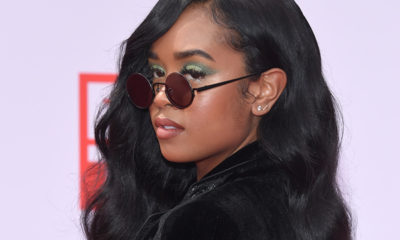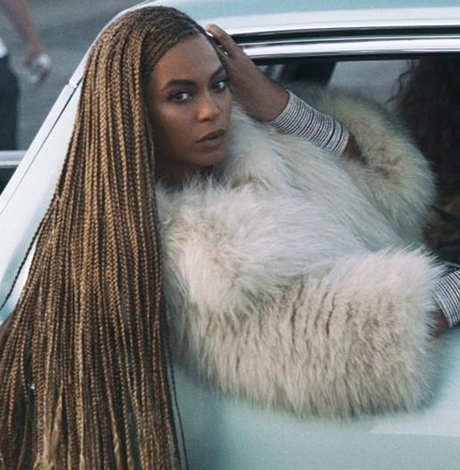Music & Concerts
‘Blue Hearts’ beating: an interview with Bob Mould
Gay musician brings latest tour to Annapolis
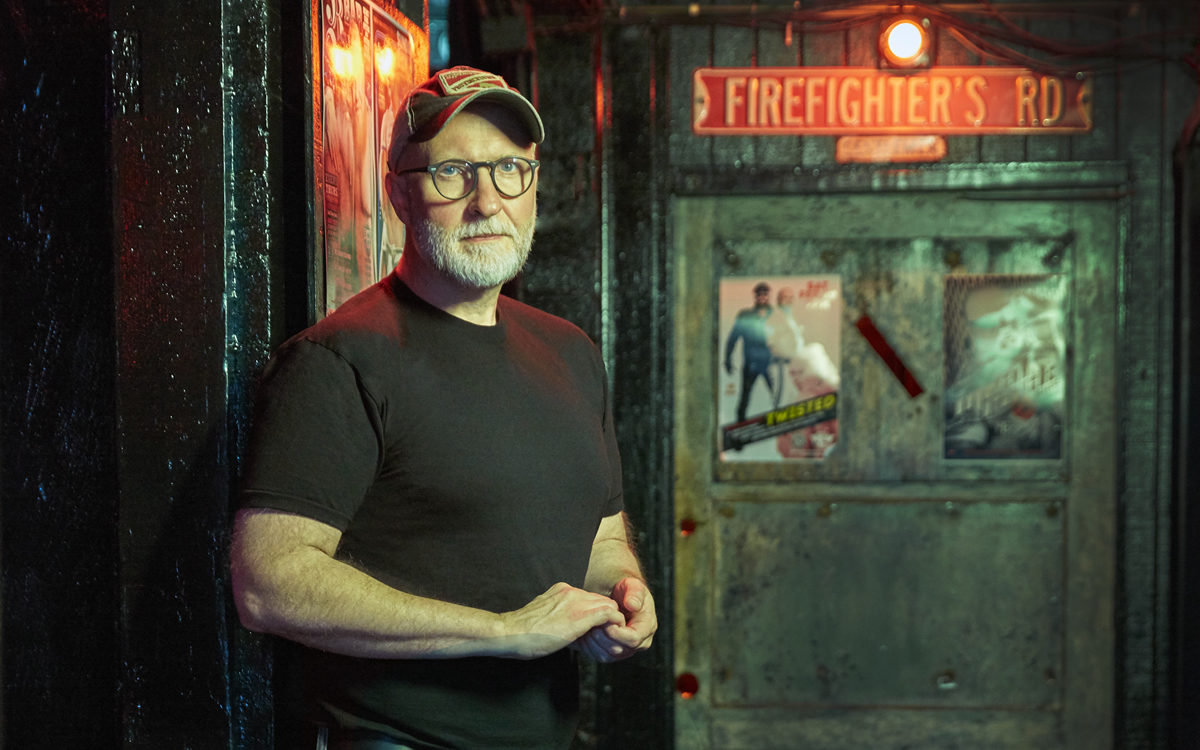
If gay modern rock legend Bob Mould isn’t the hardest-working man in music, he’s definitely one of them. To prove that point, he’s wasted no time in following up 2019’s aptly titled “Sunshine Rock” with the somewhat bluer “Blue Hearts (Merge).” The album is blue in terms of its sexual content (check out “Leather Dreams”) as well as in the liberal political messaging in songs such as “American Crisis,” “Next Generation” and “Heart on my Sleeve.”
As always, the songs are delivered in his trademark crunchy and blazing guitar rock style, with Mould backed by longtime bandmates Jason Narducy on bass and Jon Wurster on drums. I had the pleasure of speaking with Bob about Blue Hearts and the Distortion box sets.
BLADE: Blue Hearts opens with “Heart on my Sleeve,” which begins with the lines, fittingly enough for right now, “The left coast is covered in ash and flames/keep denying the winds of climate change.” The song was written and recorded long before the disastrous wildfire season. How does it feel to you when you listen to or perform that song now?
BOB MOULD: You can’t write this stuff [laughs]. When I started gathering ideas for this record, it was with the idea of being more of a journalist. Trying to make my thoughts known, these are the things that appeared. Specifically, on that line, we’ve been having years of fires out here. Now, it’s just so much worse. They tried to tell people this might happen, but I guess it wasn’t that important to the government to think about climate change until it was too late. So here we are.
BLADE: Has living in California heightened your awareness of the dire state of environmental issues and in what ways do you hope to make an impact?
MOULD: For the better of the last four years I was in Berlin, Germany, where we like to think that Germany and Europe is way more progressive. But even in Germany, coal is such a motivator over there, and the auto industry is so important. They’ve got issues with (gas pipeline) Nord Stream 2 with the Russians right now. I guess being back in California since November of 2019, I think I have a heightened awareness all the way across the board, not only how climate change is affecting the West Coast, but how the sensationalist mainstream news media, news as entertainment, has affected the psyche of the country and created such great division. For me, the juxtaposition is that in Germany, news is mainly still news. It’s not exciting. There’s nothing titillating about it. It’s just news, which is what news should be. Being back here, I think the over amplifying of things here has created beyond an echo chamber, almost canceling out truth, which is nutty to be thinking about at eight in the morning when I can’t even breathe outside.
BLADE: “Next Generation,” which follows “Heart on my Sleeve,” is also prescient, with the lines “Please pay attention/Take to the streets for your rights,” especially in light of the Black Lives Matter movement’s rise to prominence following the murder of George Floyd and others. Would you agree that the timing of the release of “Blue Hearts” is extraordinary?
MOULD: It was a little unnerving. In life and, for lack of a better term, in entertainment and the arts, timing is key to things. When I set out to write the record it was just a general impression, speaking on 59 years on this planet and seeing what we as people actually need to do. Such as turning away from sensationalist force-fed media and talking to our neighbors, getting out on the street, protesting. Being in Germany, I don’t think a single week went by where I did not stumble into an organized protest that would take over the main streets of certain neighborhoods in Berlin. It was accepted behavior. To go from years of that and to come back here, writing these words was sort of a reminder to people that this is what we did in America in the `60s. This is not a bunch of radical, left extremists, who are going to loot Bergdorf Goodman. That’s not the intent when people take to the streets for their rights. What I just described is actually looting, which is different [laughs].
BLADE: It’s ironic, don’t you think, that the some of the people who were out there protesting in the streets in the ‘60s, have now, in their dotage, become so conservative, even going so far as to support Trump?
MOULD: It sure feels like that could be the case. I don’t have hard evidence, but I would suggest you may be right [laughs].
BLADE: It’s frightening, because these are the original hippies who are upset about protests.
MOULD: I think people protest when they feel like they’ve lost their voice or they have no means. Means being that they don’t have a large stake in the stock market, which the president speaks about when he says, “I didn’t want to cause panic.” Meaning panic on Wall Street. I worry, because my job is to observe the world through my oddly shaped glasses [laughs] and just report back on what I remember from being a 21, 22-year-old kid who had absolutely nothing but a band and a guitar and an amp with which to do things. Maybe these people who used to protest when they had nothing, once people get means, once people are invested, maybe they lose sight of the plight of the common person.
BLADE: When I interviewed gay writer David Leavitt about his novel “Shelter in Place,” we talked about the parallels for gay men when it comes to the AIDS crisis and the COVID-19 pandemic, similarities including Republicans being in power and the undue influence of evangelicals. “American Crisis,” the blistering first single from “Blue Hearts” shares a similar sentiment. Do you think gay men could teach the rest of the world how to survive a plague, both viral and extremist?
MOULD: I think David is illuminating what I think is a historical parallel, which you just can’t deny. Whether America’s ready to listen to older gay men beyond caricatures on network television, I don’t know. If they are, there are things we can tell them. For me personally, as a young gay man in the `80s, it sort of crushed my development, but I realized that I had to protect other people so I had to do certain things for 35 years until PrEP came along. Why was it not a problem for me for all those years, yet when you ask someone why they don’t wear a mask, it’s because it’s their liberty. What if I had been that cavalier?
BLADE: Right. It was such a simple thing for us to realize that to save our own lives, and the lives of others, you put on a condom, you relearn how to have sex. There’s just no comparison to putting on a mask.
MOULD: Yes, because this is just something that everybody’s doing on their face. When you’re asking people to make emotional sacrifices in moments of intimacy, I think that’s a little bit heavier than having a mask on your doorknob so you put it on your face when you leave your dwelling [laughs].
BLADE: The activist aspect of the album is reflected in that you donated the proceeds from the “American Crisis” single to OutFront Minnesota and Black Visions Collective when it was released a few months ago. Why were those two organizations chosen?
MOULD: That was a split choice. I chose the LGBT group in Minnesota because a lot of the record, as you have seen, speaks from an older gay male perspective. Merge Records donated its half to the Black Lives Matter related situation that was going on in Minnesota. We mutually said that this covers all the things we’re trying to say.
BLADE: “Leather Dreams,” which basically struts out of the speakers like a freeballing stud, manages to be both erotic and thoughtful, with its reference to “Tops and their bottoms, condoms and PrEP.” It’s also the sound of sexual liberation, so was it as liberating to write as it sounds?
MOULD: Yeah! I had a three-day sleepless stretch in January, right before going on the road and then right into the studio with these songs. I had the house to myself. I was writing like a madman. That one just fell out of nowhere. It was so hilarious because clearly these are the experiences of someone [laughs]. It’s really riotous. I don’t think I’ve ever been quite as out front. There were moments on Modulate, back in ’02, but nothing quite as overt. I think it’s outright hilarious. Who is this guy? Who has this life [laughs]?
BLADE: In addition to “Blue Hearts,” there is the massive CD and LP box sets Distortion: 1989-2019 and Distortion: 1989-1995, respectively. What does it mean to you to have these expansive retrospectives available and why was now the time to release them?
MOULD: I had been talking with Demon Music Group about this project for five years on and off. A lot it was a matter of timing. Back in ’16, Patch The Sky was out and I was doing a lot of touring and I kept that record alive for almost two years and then I went right into Sunshine Rock (in 2019). I thought that after Sunshine Rock wound its way down, I was going to take a longer break. Maybe I’ll take a couple of years. This would be a good time to have the box set. It will be something in between Sunshine Rock and whatever’s next. Then my head started burning with all this new music. Then I was faced with this interesting dilemma of having a current project and a retrospective at the same time. It’s weird because the current record sounds like the music that predates the box set [laughs]. That really aggressive simplistic songwriting style. But the box set is really great. Every time I put out a record, people are like, “Is this your 14th solo album?” and I can never remember; now they’re all in one place.
Music & Concerts
Musical icons and newer stars to rock D.C. this spring
Brandi Carlile, Bad Bunny, Nicki Minaj, and more headed our way
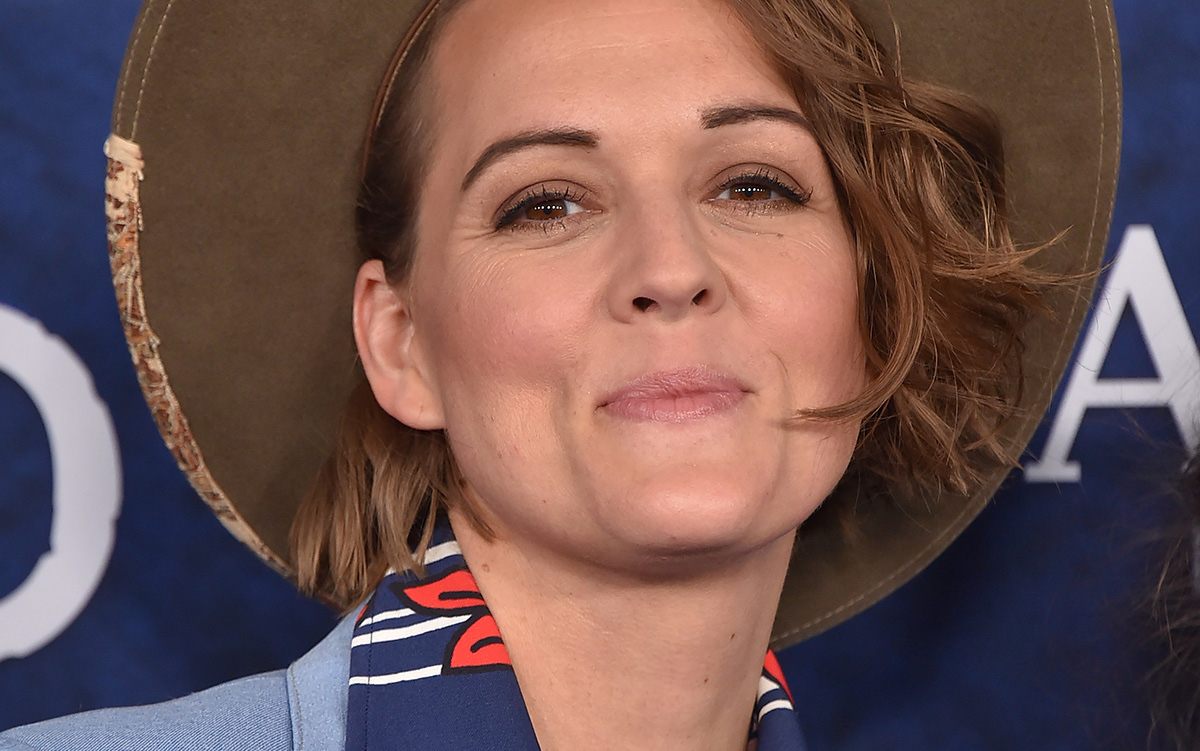
Bands and solo artists of all different genres are visiting D.C. this spring. Patti LaBelle and Gladys Knight will team up to perform at the Wolf Trap in June, and girl in red will play at the Anthem in April. Some artists and bands aren’t paying a visit until the summer, like Janet Jackson and Usher, but there are still plenty of acts to see as the weather warms up.
MARCH
Brandi Carlile plays at the Anthem on March 21; Arlo Parks will perform at 9:30 Club on March 23; Girlschool will take the stage at Blackcat on March 28.
APRIL
Nicki Minaj stops in D.C. at Capital One Arena as part of her North American tour on April 1; Bad Bunny plays at Capital One Arena on April 9 as part of his Most Wanted tour; girl in red performs at the Anthem on April 20 and 21; Brandy Clark plays at the Birchmere on April 25; Laufey comes to town to play at the Anthem on April 25 and 26.
MAY
Belle and Sebastian play at the Anthem on May 2; Chastity Belt performs at Blackcat on May 4; Madeleine Peyroux stops at the Birchmere on May 5; The Decemberists play at the Anthem on May 10; the rock band Mannequin Pussy performs at the Atlantis on May 17 and 18; Hozier plays at Merriweather Post Pavilion on May 17 as part of the Unreal Unearth tour.
JUNE
Patti LaBelle and Gladys Knight will sing soulful melodies at Wolf Trap on June 8; Joe Jackson performs at the Lincoln Theatre on June 10; the Pixies and Modest Mouse are teaming up to play at Merriweather Post Pavilion on June 14; Maggie Rogers plays at Merriweather Post Pavilion on June 16 as part of The Don’t Forget Me tour; Brittany Howard headlines the Out & About Festival at Wolf Trap on June 22; Sarah McLachlan plays at Merriweather Post Pavilion on June 27; Alanis Morissette performs at Merriweather Post Pavilion on June 29 and 30
Music & Concerts
Grammys: Queer women and their sisters took down the house
Taylor Swift won Album of the Year
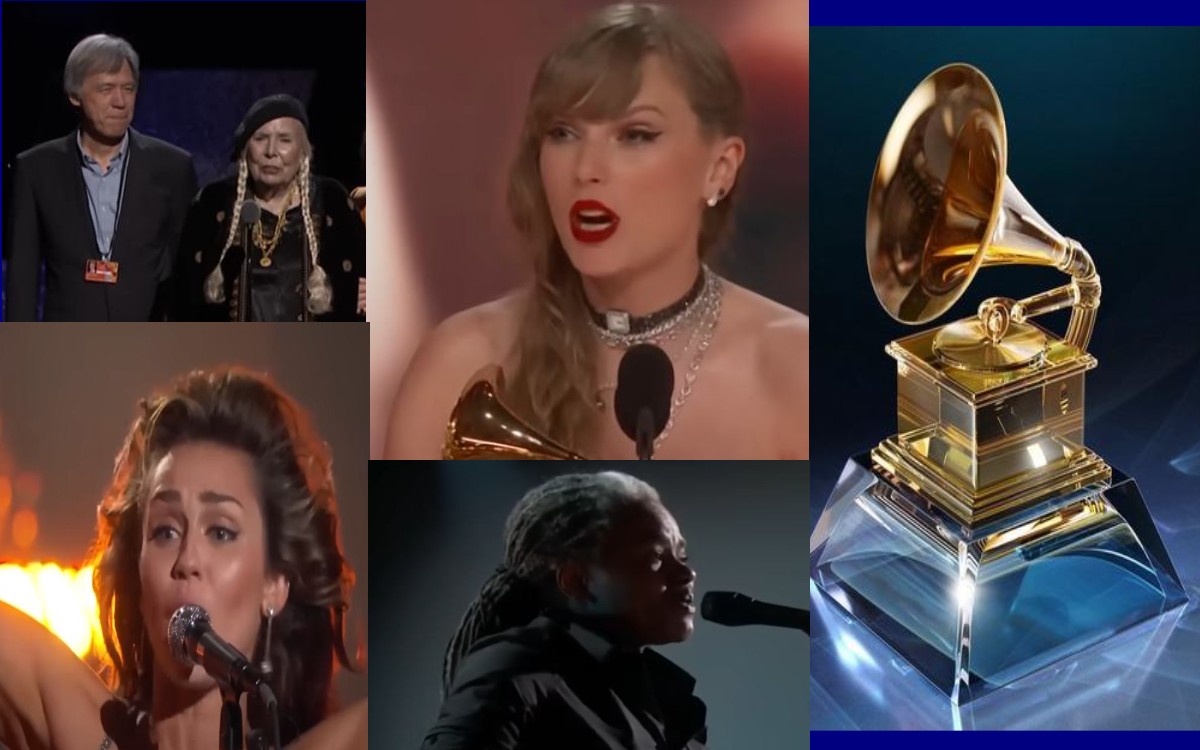
When the late, great Ruth Bader Ginsburg was asked when there will be enough women on the Supreme Court, her answer was simple: Nine. She stated: “I say when there are nine, people are shocked. But there’d been nine men, and nobody’s ever raised a question about that.” RBG did not attend the Grammy’s last night, but her spirit sure did. Women, at long last, dominated, ruled and killed the night.
Cher, in song a decade ago, declared that “this is a woman’s world,” but there was little evidence that was true, Grammy, and entertainment awards, speaking. In 2018, the Grammys were heavily criticized for lack of female representation across all categories and organizers’ response was for women to “step up.”
Be careful what you wish for boys.
The biggest star of the 2024 Grammys was the collective power of women. They made history, they claimed legacy and they danced and lip sang to each other’s work. Standing victorious was Miley Cyrus, Billie Eilish, SZA (the most nominated person of the year), Lainey Wilson, Karol G, boygenius, Kylie Minogue and Victoria Monét. Oh, yes, and powerhouse Taylor Swift, the superstar from whom Fox News cowers in fear, made history to become the first performer of any gender to win four Best Album of the Year trophies.
In the throng of these powerful women stand a number of both LGBTQ advocates and queer identifying artists. Cyrus has identified as pansexual, SZA has said lesbian rumors “ain’t wrong,” Phoebe Bridgers (winner of four trophies during the night, most of any artist) is lesbian, Monét is bi and Eilish likes women but doesn’t want to talk about it. Plus, ask any queer person about Swift or Minogue and you are likely to get a love-gush.
Women power was not just owned by the lady award winners. There were the ladies and then there were the Legends. The first Legend to appear was a surprise. Country singer Luke Combs has a cross-generational hit this year with a cover of Tracy Chapman’s “Fast Car.” When originally released, the song was embraced as a lesbian anthem. When performing “Fast Car,” surprise, there was Chapman herself, singing the duet with Combs. The rendition was stunning, sentimental and historic.
Chapman, like many of the night’s female dignitaries, has not been public with her sexuality. Author Alice Walker has spoken of the two of them being lovers, however.
The legend among legends of the night, however, was the one and only Joni Mitchell. Not gay herself, she embodies the concept of an LGBTQ icon, and was accompanied by the very out Brandi Carlile on stage. On her website, Mitchell’s statement to the LGBTQ community reads, “The trick is if you listen to that music and you see me, you’re not getting anything out of it. If you listen to that music and you see yourself, it will probably make you cry and you’ll learn something about yourself and now you’re getting something out of it.”
Mitchell performed her longtime classic “Both Sides Now.” The emotion, insight and delivery from the now 80-year old artist, survivor of an aneurism, was nothing short of profound. (To fully appreciate the nuance time can bring, check out the YouTube video of a Swift lookalike Mitchell singing the same song to Mama Cass and Mary Travers in 1969.) In this latest rendition, Mitchell clearly had an impact on Meryl Streep who was sitting in the audience. Talk about the arc of female talent and power.
That arc extended from a today’s lady, Cyrus, to legend Celine Dion as well. Cyrus declared Dion as one of her icons and inspirations early in the evening. Dion appeared, graceful and looking healthy, to present the final, and historic, award of the night at the end of the show.
Legends did not even need to be living to have had an effect on the night. Tributes to Tina Turner and Sinead O’Conner by Oprah, Fantasia Barrino-Taylor and Annie Lennox respectively, proved that not even death could stop these women. As Lennox has musically and famously put it, “Sisters are doing it for themselves.”
Even the content of performances by today’s legends-in-the-making spoke to feminine power. Eilish was honored for, and performed “What Was I Made For?,” a haunting and searching song that speaks to the soul of womanhood and redefinition in today’s fight for gender rights and expression, while Dua Lipa laid down the gauntlet for mind blowing performance with her rendition of “Houdini” at the top of the show, Cyrus asserted the power of her anthem “Flowers” and pretty much stole the show.
Cyrus had not performed the song on television before, and only three times publicly. She declared in her intro that she was thrilled over the business numbers the song garnered, but she refused to let them define her. As she sang the hit, she scolded the audience, “you guys act like you don’t know the words to this song.” Soon the woman power of the room was singing along with her, from Swift to Oprah.
They can buy themselves flowers from now on. They don’t need anyone else. Cyrus made that point with the mic drop to cap all mic drops, “And I just won my first Grammy!” she declared as she danced off stage.
Even the squirmiest moment of the night still did not diminish the light of women power, and in fact, underscored it. During his acceptance of the Dr. Dre Global Impact Award, Jay-Z had a bone to pick with the Grammy voters. He called out the irony that his wife Beyoncé had won more Grammys than any other human, but had never won the Best Album of the Year. Yeah, what’s with that?
But then, it brought additional context ultimately to the fact that the winner of the most Grammys individually … is a woman. And to the fact that the winner of the most Best Album of the Year awards … is a woman.
Hopefully this was the night that the Grammys “got it.” Women are the epicenter of The Creative Force.
Will the other entertainment awards get it soon as well? We can hope.
Most importantly, in a political world where women’s healthcare is under siege. Will the American voters get it?
A little known band named Little Mix put it this way in their 2019 song “A Woman’s World.”
“If you can’t see that it’s gotta change
Only want the body but not the brains
If you really think that’s the way it works
You ain’t lived in a woman’s world
Just look at how far that we’ve got
And don’t think that we’ll ever stop…”
From Grammy’s mouth to the world’s ear.
Music & Concerts
Janet Jackson returning to D.C, Baltimore
‘Together Again Tour’ comes to Capital One Arena, CFG Bank Arena
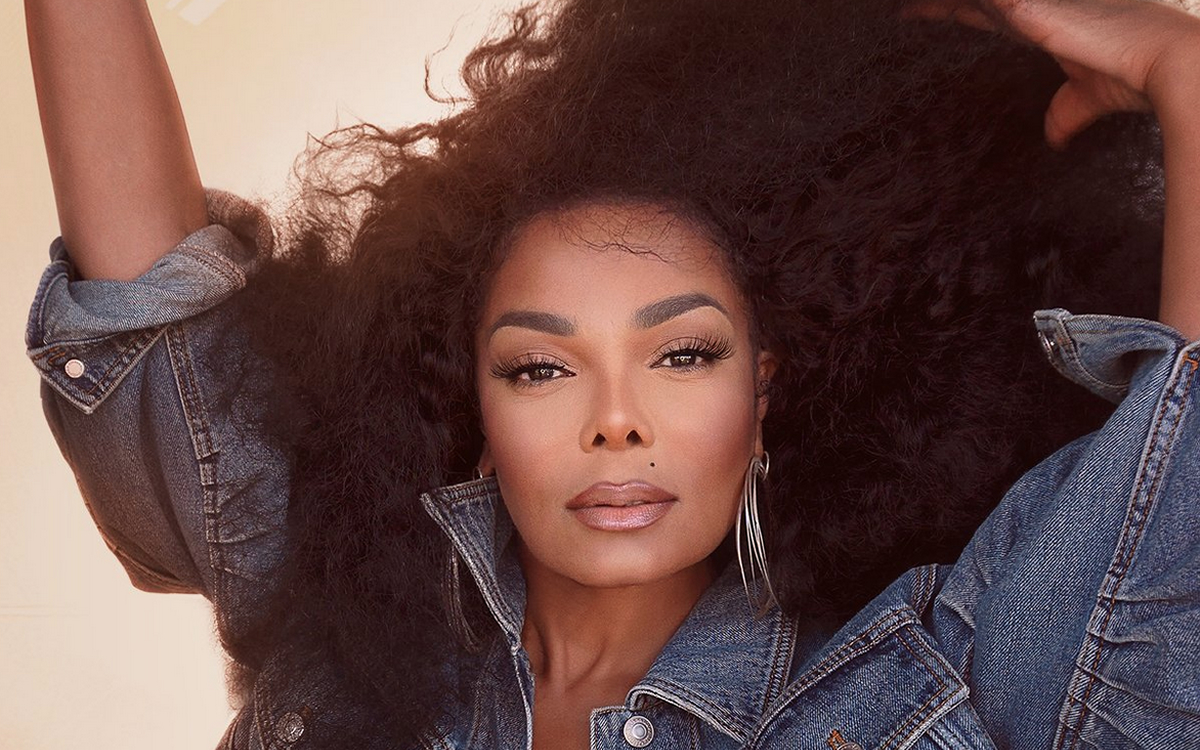
Pop icon Janet Jackson announced this week an extension of her 2023 “Together Again Tour.” A new leg of the tour will bring Jackson back to the area for two shows, one at D.C.’s Capital One Arena on Friday, July 12 and another at Baltimore’s CFG Bank Arena on Saturday, July 13.
Tickets are on sale now via TicketMaster. LiveNation announced the 2023 leg of the tour consisted of 36 shows, each of which was sold out. The 2024 leg has 35 stops planned so far; R&B star Nelly will open for Jackson on the new leg.
Jackson made the tour announcement Tuesday on social media: “Hey u guys! By popular demand, we’re bringing the Together Again Tour back to North America this summer with special guest Nelly! It’ll be so much fun!”
-

 Africa4 days ago
Africa4 days agoCongolese lawmaker introduces anti-homosexuality bill
-

 District of Columbia21 hours ago
District of Columbia21 hours agoReenactment of first gay rights picket at White House draws interest of tourists
-

 World4 days ago
World4 days agoOut in the World: LGBTQ news from Europe and Asia
-

 Arizona1 day ago
Arizona1 day agoAriz. governor vetoes anti-transgender, Ten Commandments bill

